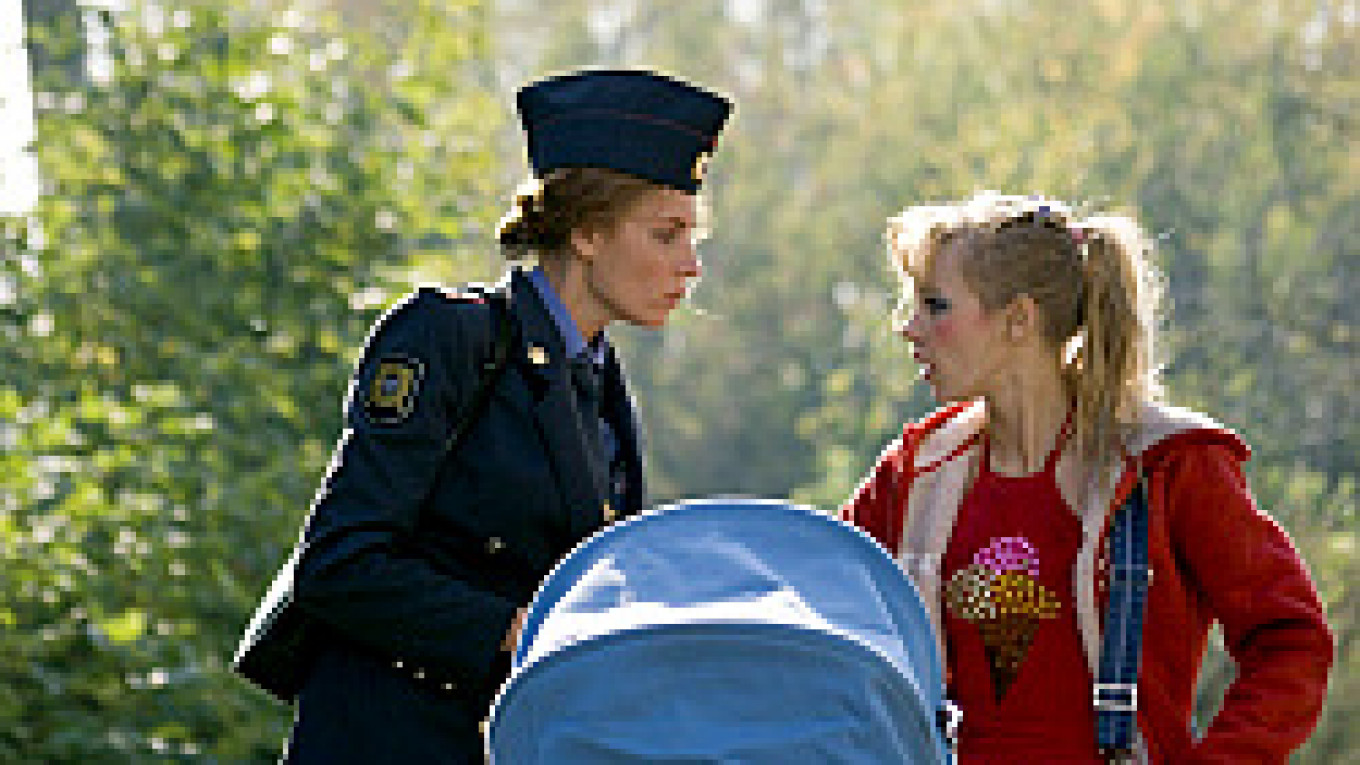Shagalova has a classic film pedigree as the daughter of renowned writer-director Alexander Mindadze. This film, her second, is a portrait of a small industrial town (locations were shot in Podolsk, though there's a hint the action is somewhere in Tyumen) in the present day.
Directors from Moscow are sometimes criticized for trying to represent the realities of a world very different from their own. But in this case the film the film is emotionally true, and while the environment is bleak it seems authentically so.
There are some familiar Russian elements in the film -- a deteriorating factory into which workers troop every morning to uplifting music; characters who live together in very close quarters in a dormitory; a group of four males returned from a war (presumably Chechnya), one of whom is still clearly not himself and whose psychological trauma drives the plot to a tragic conclusion. Along the way there's also plenty of drinking.
There is also plenty of empathy. The film opens with the glamorous Nastya (Yulia Peresild), a famous television actress, returning from Moscow to her hometown in the provinces. It is apparent that her experience in the capital has left her wounded, so she is coming to stay with her sister, Vera (Elvira Bolgova). Vera lives with a young child and her husband Kolya (Alexander Golubev), whose aggressive behavior stems from injuries sustained in the way.
From the factory to the football pitch, the community in which they live is varied indeed, with a cast so large it's pointless to detail all the players. Kolya remains closest to his army buddies, who come from various backgrounds -- one is Korean, another Muslim -- and their neighbors include a married couple from Central Asia who seem to have fit in well, though there's racial tension in the town.
But the emotional tension within the group is more complicated. Kolya is having an affair with the local policewoman, a somewhat comical character, who is nominally in charge of the neighborhood. Meanwhile, his Korean buddy is clearly in love with Vera. And Olga finds her own love with their friend, the half-Cuban nicknamed Che (Leonid Bichevin). Their relationship seems to offer a chance of happiness, but a tragic plot twist prevents this. There are conflicts of loyalty as well as more literal conflicts, an attempt (somewhat improbable) at flight and a conclusion that is tragic, all because, we suspect, that it's a world in which things often go wrong.
One character has a line -- "After that, you don't want to live" -- but that would be too easy a summary. Shagalova's script digs deeper. Passions and chances at a new life come and go, but the overall theme is one of survival. Yevgeny Privin's cinematography is good but unobtrusive, while a musical score by Alexei Shelygin combines original work with strong use of Russian pop. The more often the capital's directors get out beyond the limits of the Moscow Ring Road, the better.
3.5 / 5
A Message from The Moscow Times:
Dear readers,
We are facing unprecedented challenges. Russia's Prosecutor General's Office has designated The Moscow Times as an "undesirable" organization, criminalizing our work and putting our staff at risk of prosecution. This follows our earlier unjust labeling as a "foreign agent."
These actions are direct attempts to silence independent journalism in Russia. The authorities claim our work "discredits the decisions of the Russian leadership." We see things differently: we strive to provide accurate, unbiased reporting on Russia.
We, the journalists of The Moscow Times, refuse to be silenced. But to continue our work, we need your help.
Your support, no matter how small, makes a world of difference. If you can, please support us monthly starting from just $2. It's quick to set up, and every contribution makes a significant impact.
By supporting The Moscow Times, you're defending open, independent journalism in the face of repression. Thank you for standing with us.
Remind me later.


